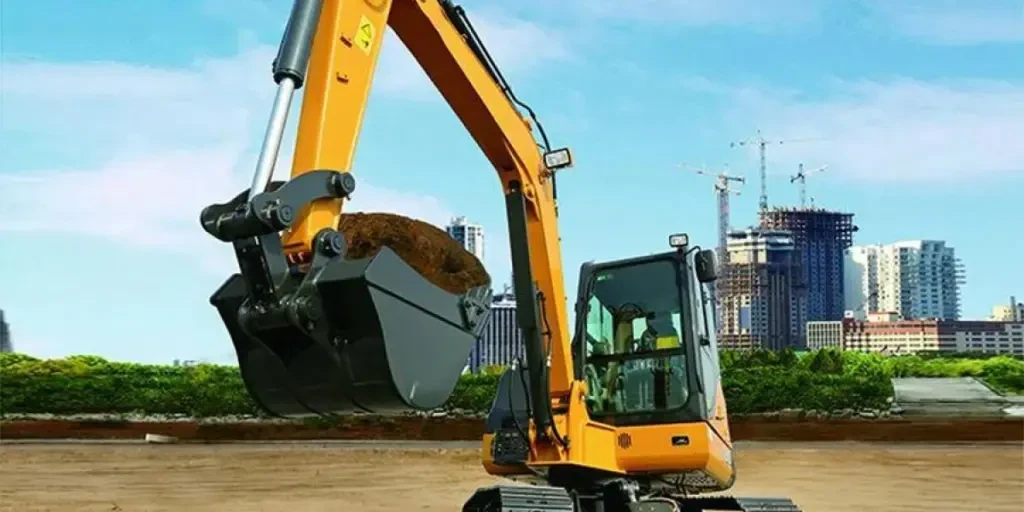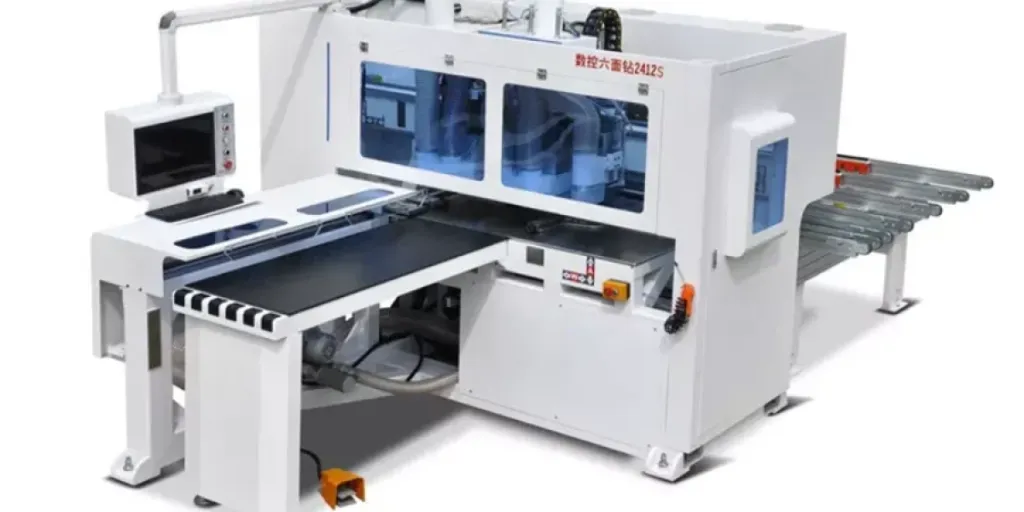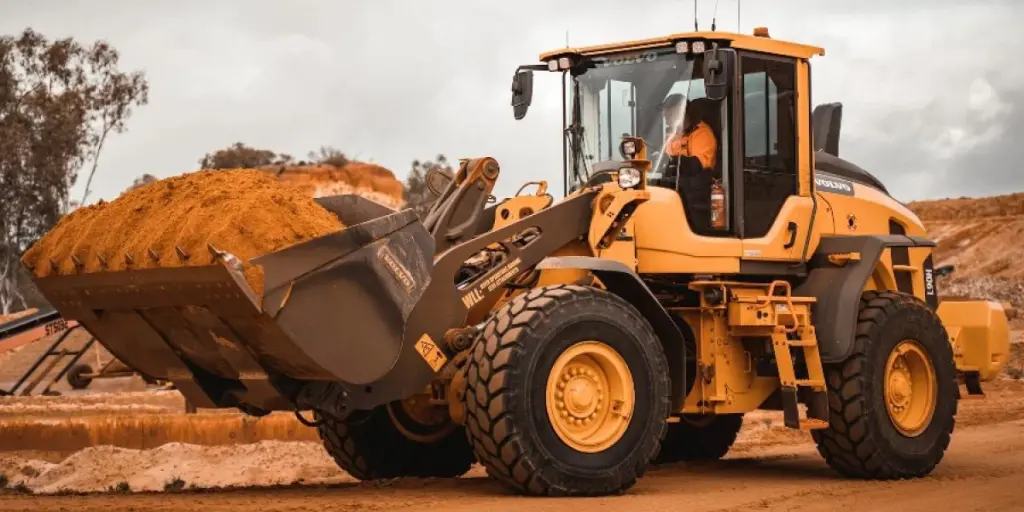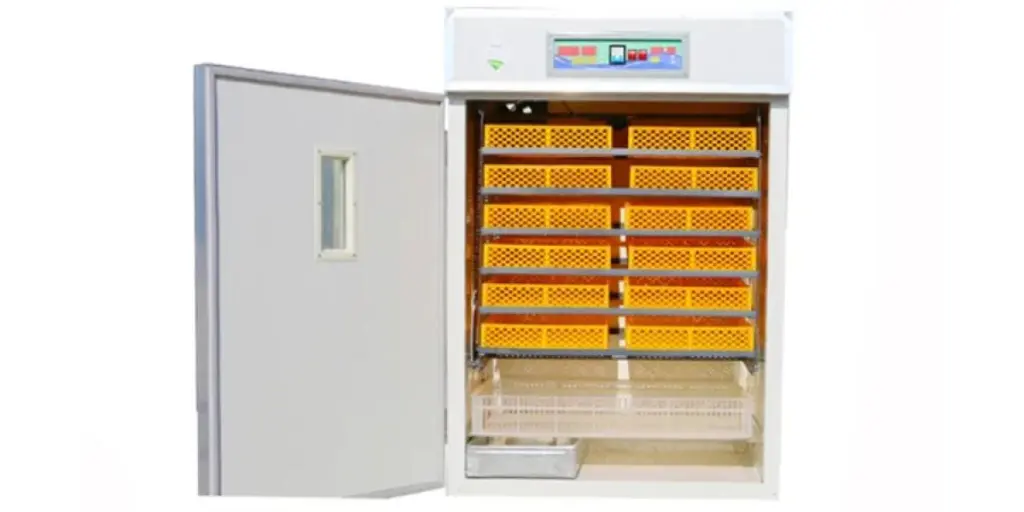Mini excavators have shown themselves to be far more popular and are grabbing much more of the excavator market than larger machines. Is this preference based just on market sentiment, or are there real advantages to mini excavators over bigger machines? This article looks at the top five advantages that mini excavators have over bigger excavators.
Table of Contents
The mini excavator market is growing
The advantages of mini excavators over larger machines
Final thoughts
The mini excavator market is growing
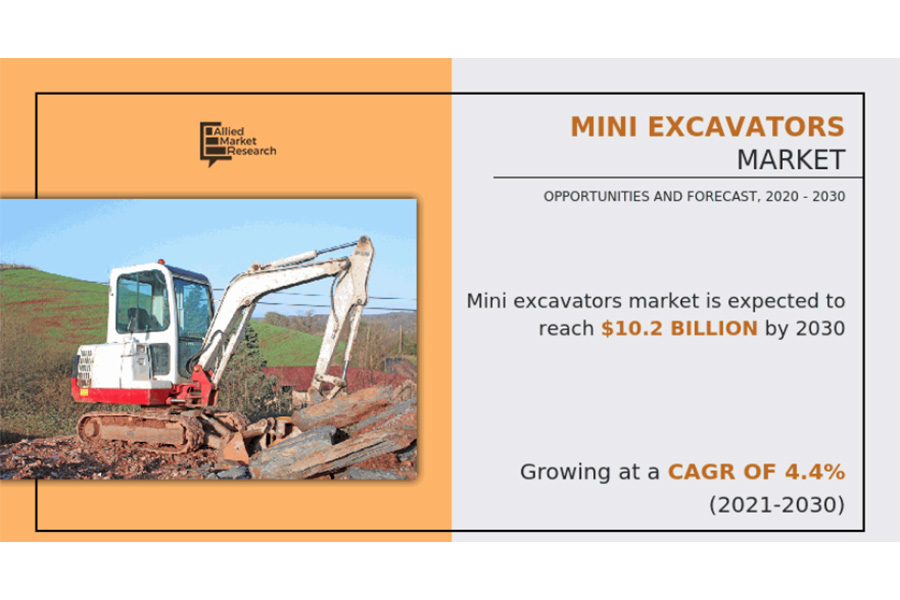
The mini excavator market was valued at USD 6.6 billion in 2020 and is expected to grow at a CAGR of 4.4% to a market value of USD 10.2 billion by 2030. Mini excavators are dominating the global excavator market, showing an 80% market share in 2021. Globally, construction projects were curtailed over the 2020-2021 period, but are now picking up pace again. Larger diggers remain in demand for heavy construction, where their power and large hauling capacity are needed but have not seen the same volumes of new sales as mini excavators.
The advantages of mini excavators over larger machines
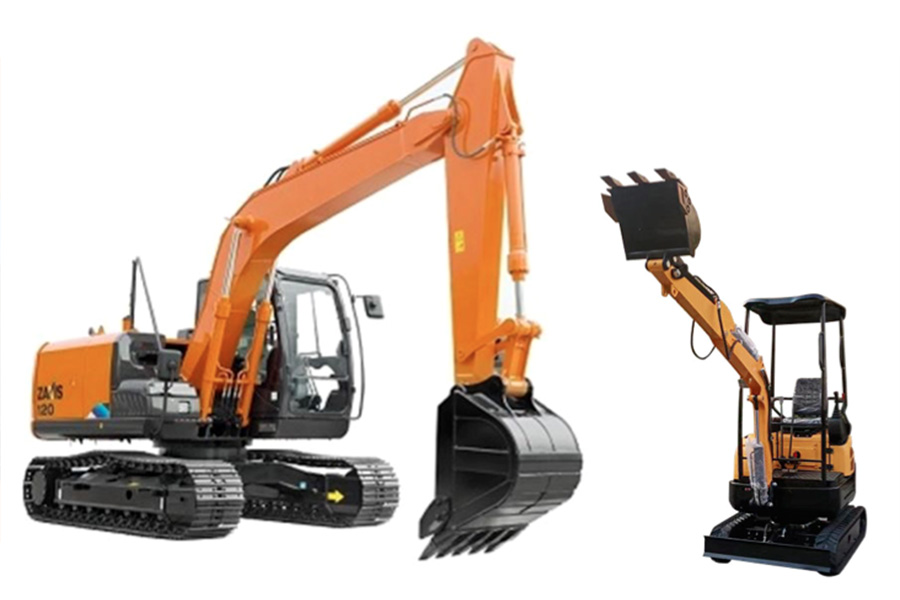
Excavators are typically classified into different size ranges based on tonnage. Different manufacturers may use slightly different terms and weight breaks, but in this article, we use four categories, mini, midi, medium, and large:
– Mini excavators are usually defined as weighing from <1 to 5 metric tons, although the term is sometimes used for 6 tons and upwards to around 10 tons instead of adding the midi range.
– Midi excavators weigh between 5 and 10 metric tons. Midi excavators usually have a little more power and capacity than mini excavators.
– Medium size, standard, or general-purpose excavators are powerful machines weighing between 5 and 25 metric tons.
– Large excavators weigh upwards of 25 metric tons and mainly fall in the 25-50 ton range, although there are truly giant machines weighing hundreds of tons.
Each size and weight category of excavator has its own benefits and advantages for specific applications. However, mini excavators have several advantages over their larger cousins that their small size provides.
1. Compactness
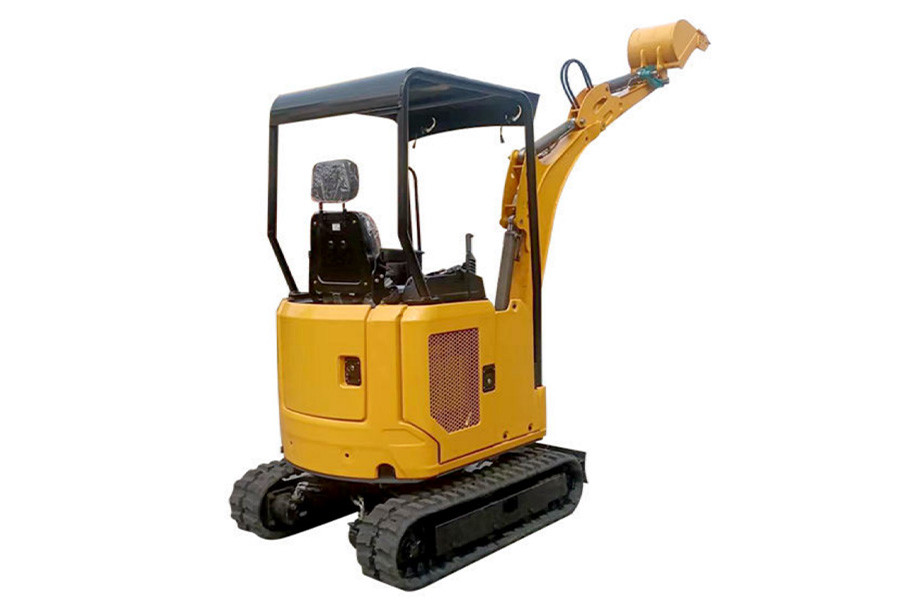
The greatest advantage that mini excavators have over larger models is their small size, weight, and low tail swing. This gives them the ability to access, maneuver and operate where larger machines cannot. Their compactness allows for easy access in tight working environments, and a low or zero tail swing means the mini excavator can freely rotate and operate in a small space. The low weight means the wheels or rubber tracks can move across soft ground without sinking, and on finished surfaces without damage. Large excavators are cumbersome and require a lot of operating space, heavy metal plates to be laid for ground protection, and existing infrastructure to be removed to provide easier access.
2. Eco-friendly power
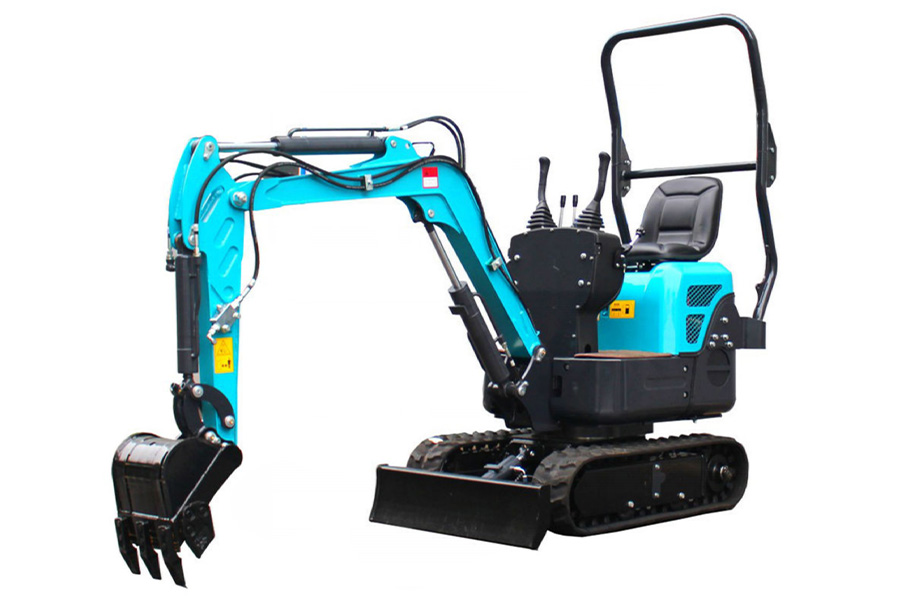
Medium and large excavators have a lot of lifting and hauling power, but require large engines to generate that power. At present, that power comes from big diesel engines that are increasingly under pressure to be cleaner, quieter and less harmful to the environment. Mini excavators don’t usually need so much power, so have the advantage of using low-power EPA diesel or electric engines. Electric engines are a real advantage for mini excavators, as they are quieter, cleaner, more eco-friendly, and easier to maintain than diesel. Manufacturers are still prototyping electric power for large excavators, but there are already many options for electric mini excavators.
3. Transport to and from site
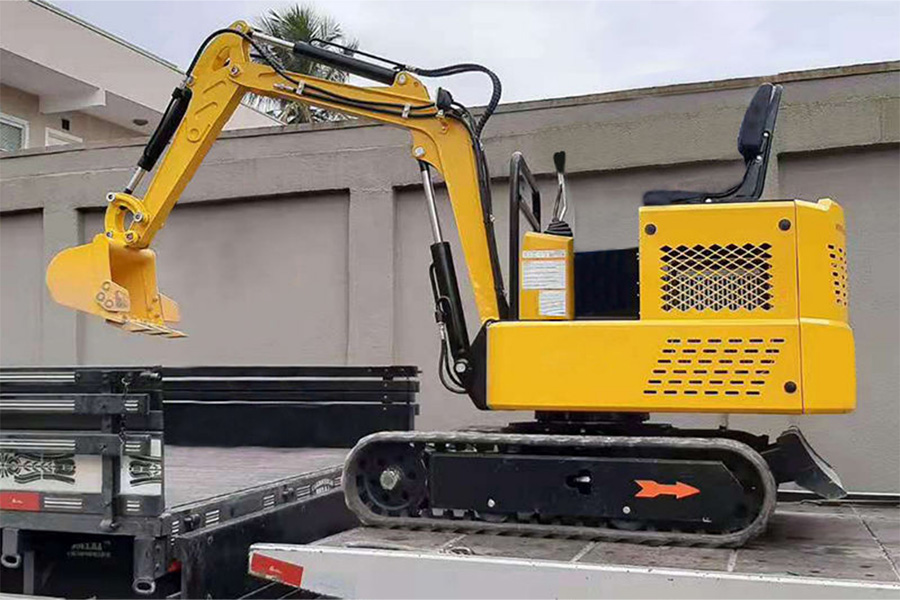
Transporting mini excavators is an advantage over larger machines because they can be easily loaded onto a small truck or trailer. Mini excavators are light and use wheels or rubber tracks, so they can also be driven on normal roads for short distances as they are unlikely to damage the road surface. In comparison, high-tonnage excavators will compress and tear up road surfaces and need a specialist heavy-duty transporter to move the machines to and from site. These transporters also have their own issues with weight, limited access, and damage to surfaces.
4. Versatility and adaptability
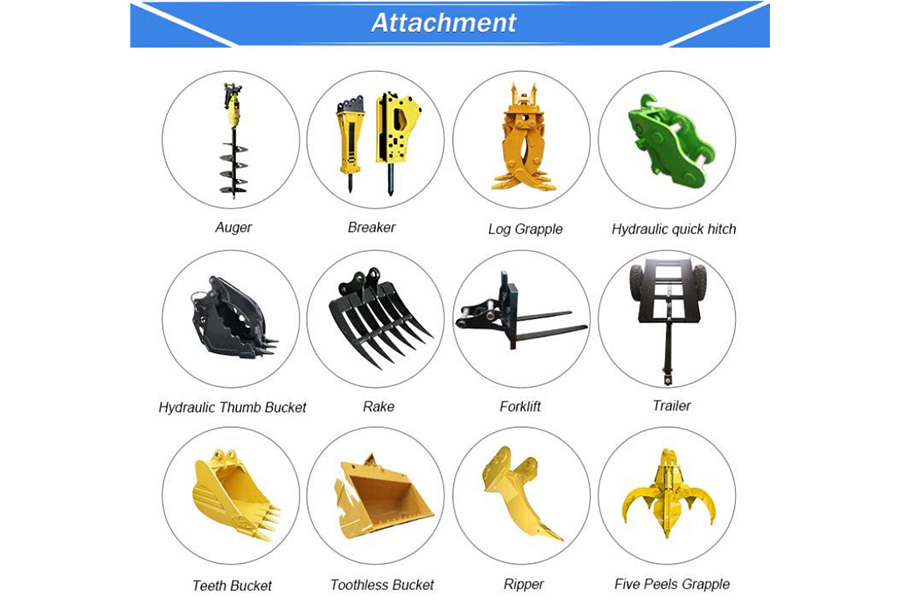
The small size of mini excavators gives them a versatility that other machines don’t have, as they can be used on so many different terrains, from large construction sites to small residential, landscaping, and farming projects. They also typically come with a wide range of tool options that can be quickly and easily fitted to adapt to different uses, from the standard bucket to ground rake. This makes mini excavators a very cost-effective purchase, as the buyer gets many machines in one, with flexibility and adaptability for many different types of jobs.
Some selected examples of the many jobs that a mini excavator can carry out include:
– Construction: digging trenches and ditches in tight spaces, moving construction materials, drilling, earth and concrete breaking, leveling, and compacting
– Residential: digging foundations, pools and sewer lines, lifting and moving concrete slabs and other heavy items, drilling post holes, demolishing walls
– Gardens and landscaping: sloping and leveling, raking and mowing, tree grabbing and moving, brush and undergrowth clearing
– Farming: tilling soil and hay bail lifting, digging trenches and post holes, lifting and moving animal feed, mowing and clearing fields
– Utility work and materials handling: general clean up of debris, snow and sand clearing, general digging and drilling, lifting and moving of heavy and irregularly shaped materials
5. Ease of use and maintenance
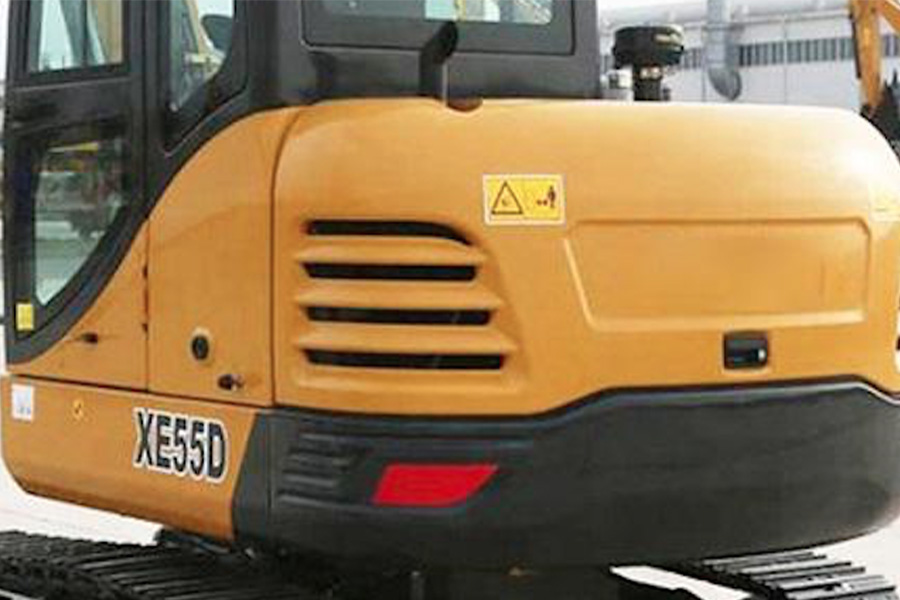
Mini excavators are easier to operate than large machines and have simpler controls that can be mastered quite quickly with minimal training. Improvements in digital displays and fingertip controls make operation even easier, and the closed-cab versions are comfortable and provide climate control. The small engines in mini excavators are easy to maintain, and the electric versions are even simpler, with fewer maintenance requirements and less maintenance costs.
Final thoughts
There are clear advantages in choosing mini excavators that reflect their popularity and increasing market share. Their convenient size, ease of use, and flexibility in so many different circumstances all make these small machines a very cost-effective choice for large and small projects alike. Their environmentally friendly profile is another clear advantage that the larger excavators cannot match. As electric engines improve to provide more battery wattage and horsepower, they are likely to provide similar clean energy benefits for midi and medium ranges, but for now, mini excavators lead the way.
